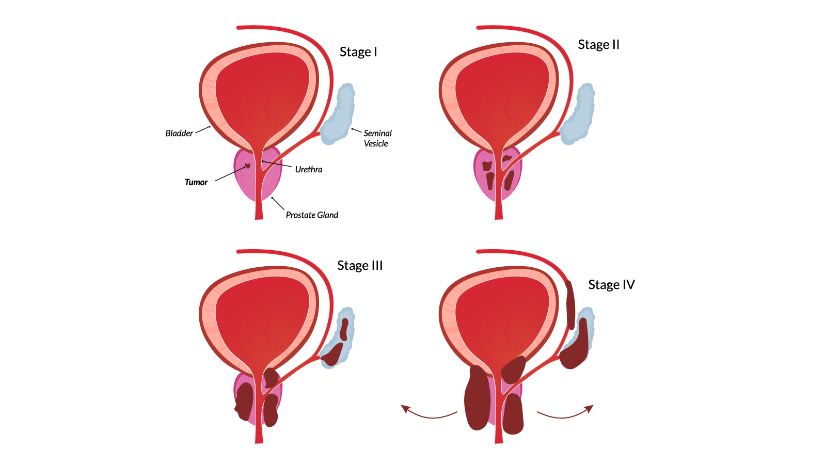Prostate Cancer Causes, Symptoms, and Treatment
Prostate cancer is one of the most common types of cancer in men. It occurs in the prostate gland, a small walnut-shaped gland that produces seminal fluid. While prostate cancer often grows slowly and may not cause serious harm, some types can be aggressive and spread quickly. Early detection and treatment are key to managing this condition. If you have concerns about prostate cancer, consult a urologist like Dr. Abdul Rauf for expert diagnosis and care.

What Is Prostate Cancer?
Prostate cancer develops when cells in the prostate gland grow uncontrollably. In many cases, it grows slowly and remains confined to the prostate, but in some cases, it can spread to other parts of the body, such as the bones or lymph nodes.
Causes of Prostate Cancer
The exact cause of prostate cancer is unknown, but several risk factors have been identified:
- Age: The risk increases significantly after age 50.
- Family History: Having a father or brother with prostate cancer increases your risk.
- Race: Prostate cancer is more common in African-American men.
- Obesity: Being overweight may increase the risk of aggressive prostate cancer.
- Diet: A diet high in red meat or dairy products may increase the risk.
Symptoms of Prostate Cancer
In its early stages, prostate cancer often causes no symptoms. As the cancer grows, symptoms may include:
- Difficulty urinating: Weak or interrupted urine flow.
- Frequent urination: Especially at night.
- Blood in urine or semen: A sign of advanced prostate cancer.
- Pain or discomfort: In the pelvic area, lower back, or hips.
- Erectile dysfunction: Difficulty achieving or maintaining an erection.
If you experience any of these symptoms, it’s important to seek medical attention.
Diagnosis of Prostate Cancer
To diagnose prostate cancer, Dr. Abdul Rauf may perform the following tests:
- Digital Rectal Exam (DRE): A physical exam to check for abnormalities in the prostate.
- Prostate-Specific Antigen (PSA) Test: A blood test to measure PSA levels, which can be elevated in prostate cancer.
- Biopsy: Removing a small sample of prostate tissue for laboratory testing.
- Imaging Tests: Using MRI, CT scans, or ultrasounds to determine the extent of the cancer.
Treatment Options for Prostate Cancer
The treatment for prostate cancer depends on the stage of the cancer, the patient’s age, and overall health. Common treatment options include:
- Active Surveillance: Monitoring the cancer closely without immediate treatment if it’s slow-growing.
- Surgery: Removing the prostate gland (prostatectomy) in cases where the cancer is localized.
- Radiation Therapy: Using high-energy beams to kill cancer cells.
- Hormone Therapy: Reducing testosterone levels to slow the growth of cancer cells.
- Chemotherapy: Using drugs to kill cancer cells in advanced cases.
- Immunotherapy: Boosting the immune system to fight cancer cells.
Preventing Prostate Cancer
While there’s no guaranteed way to prevent prostate cancer, you can reduce your risk by:
- Eating a Healthy Diet: Focus on fruits, vegetables, and whole grains. Limit red meat and high-fat dairy products.
- Exercising Regularly: Physical activity can help maintain a healthy weight and reduce cancer risk.
- Maintaining a Healthy Weight: Obesity is linked to a higher risk of aggressive prostate cancer.
- Regular Check-ups: Men over 50 (or earlier if at high risk) should discuss prostate cancer screening with their doctor.
Why Choose Dr. Abdul Rauf for Prostate Cancer Treatment?
Dr. Abdul Rauf is a highly skilled urologist with extensive experience in diagnosing and treating prostate cancer. He uses the latest technology and personalized treatment plans to provide the best possible care. Whether you need early detection, surgery, or advanced treatment, Dr. Abdul Rauf is here to help.
📧 Email: info@drabdulrauf.com
🌐 Website: www.drabdulrauf.com
📍 Address: IMC Hospital DHA Lahore
📞 Phone: 0336 8609825
Don’t let prostate cancer go undetected. Contact Dr. Abdul Rauf today for expert care and effective treatment options.
